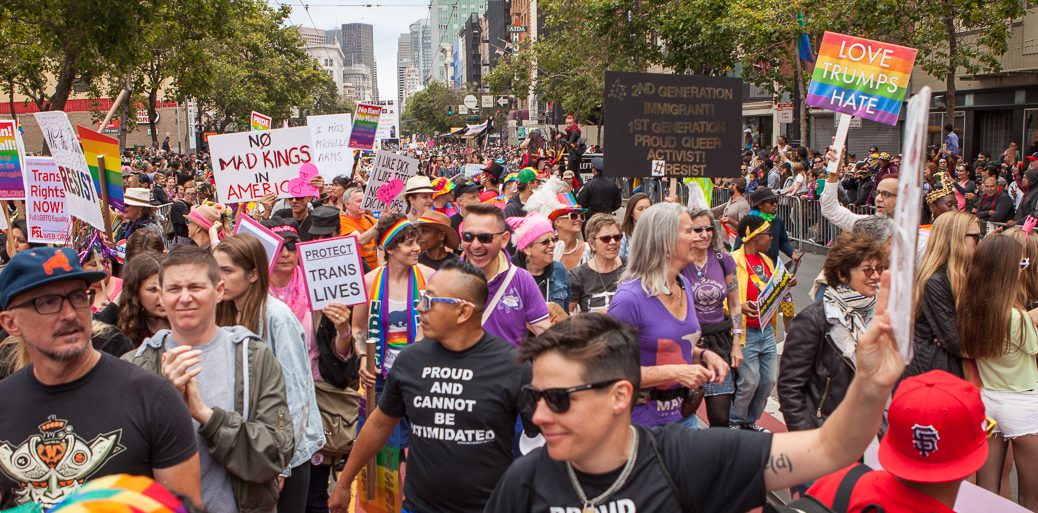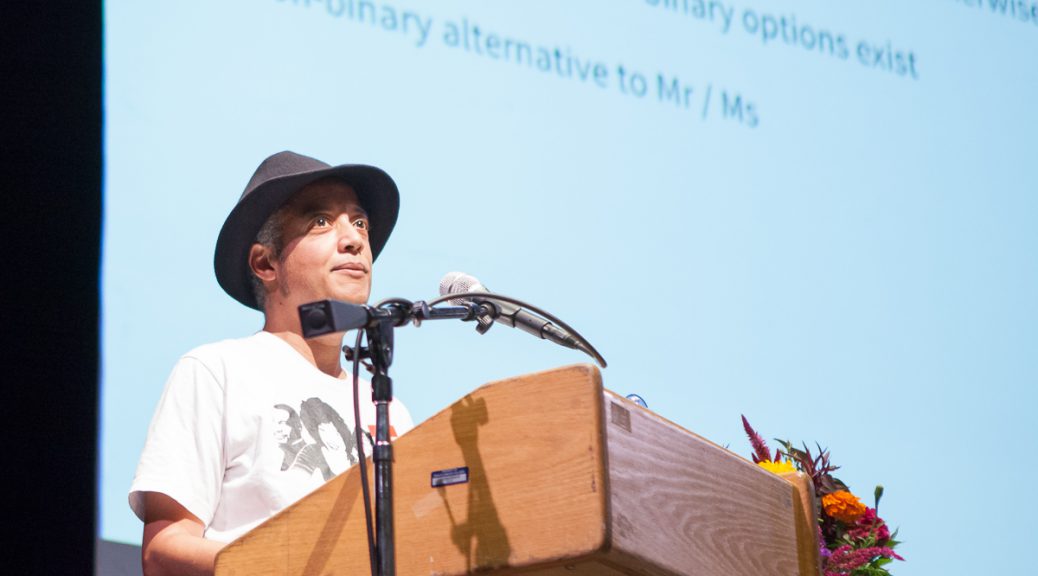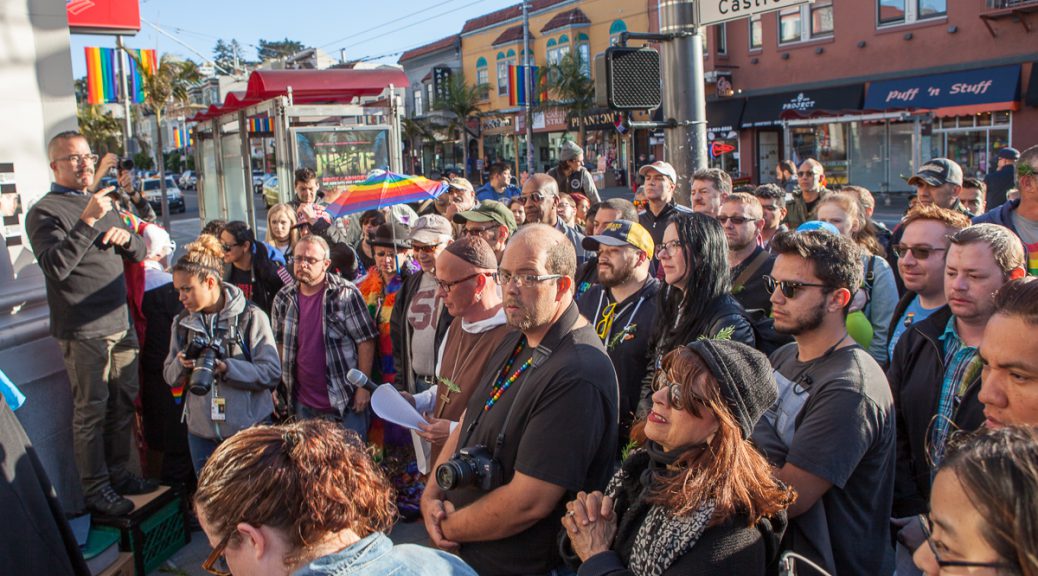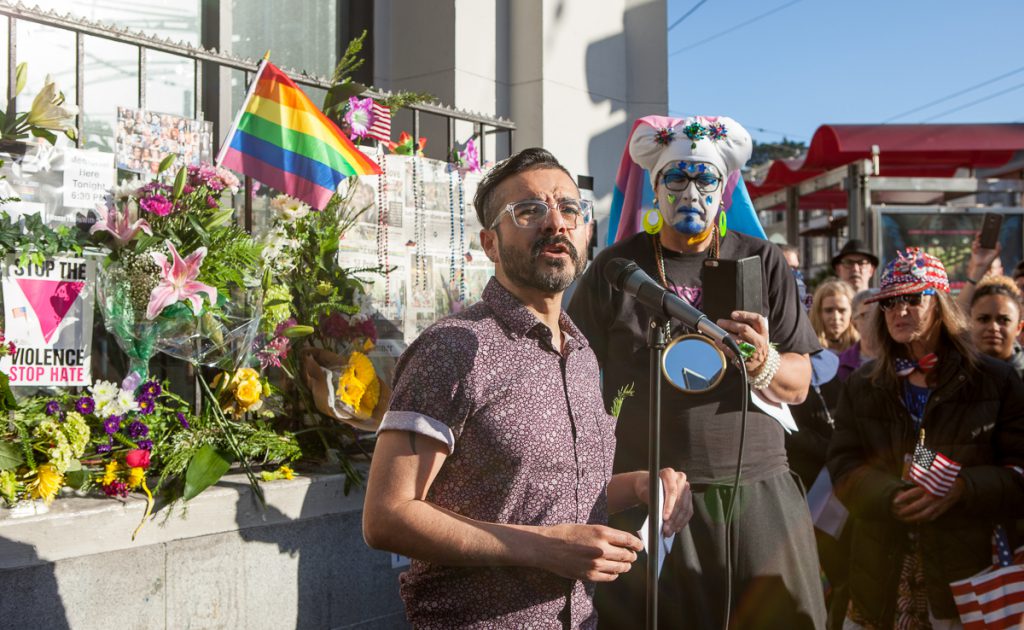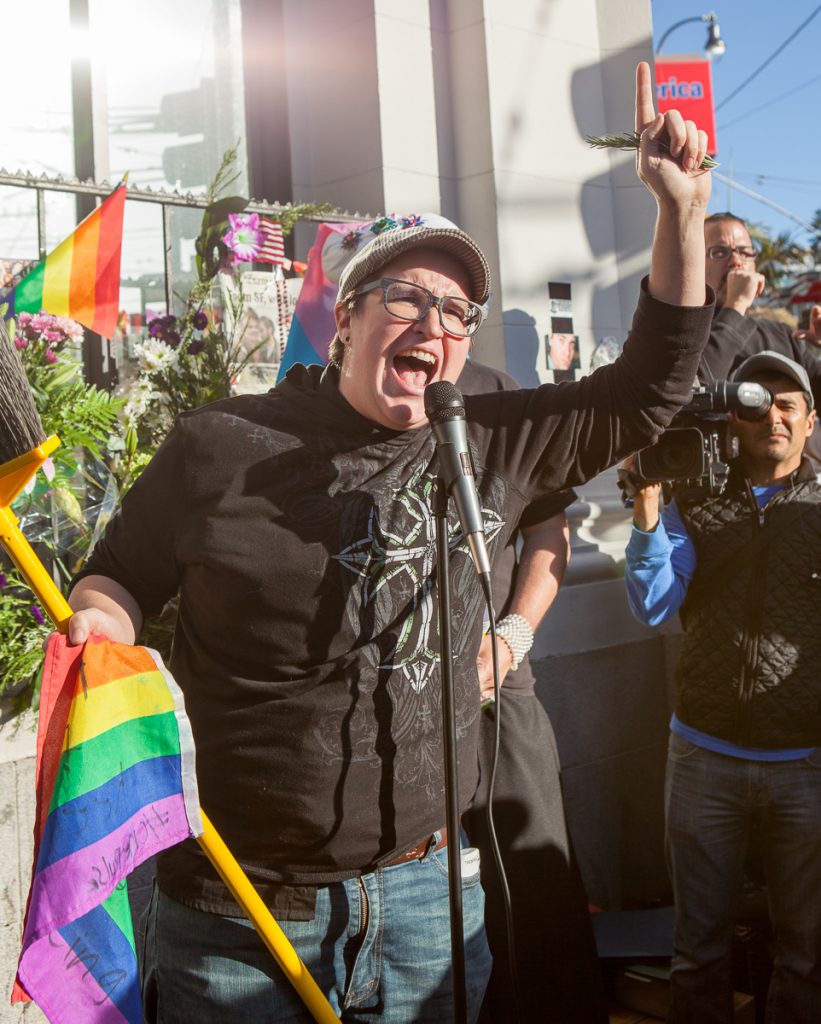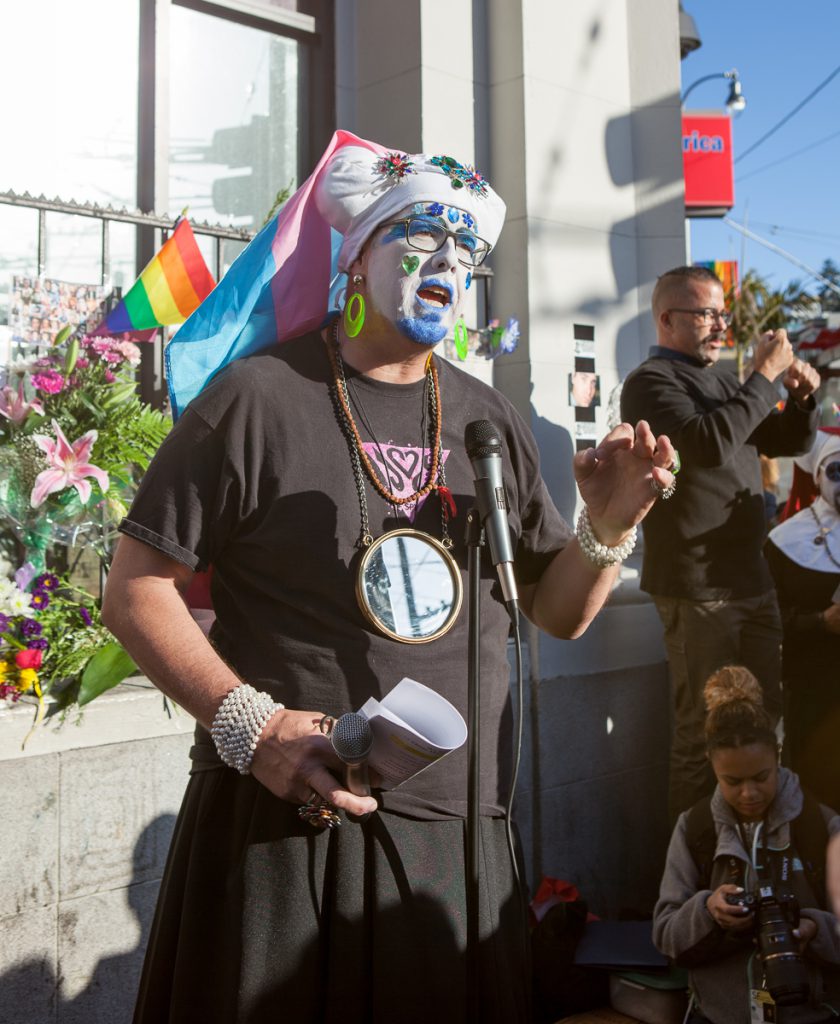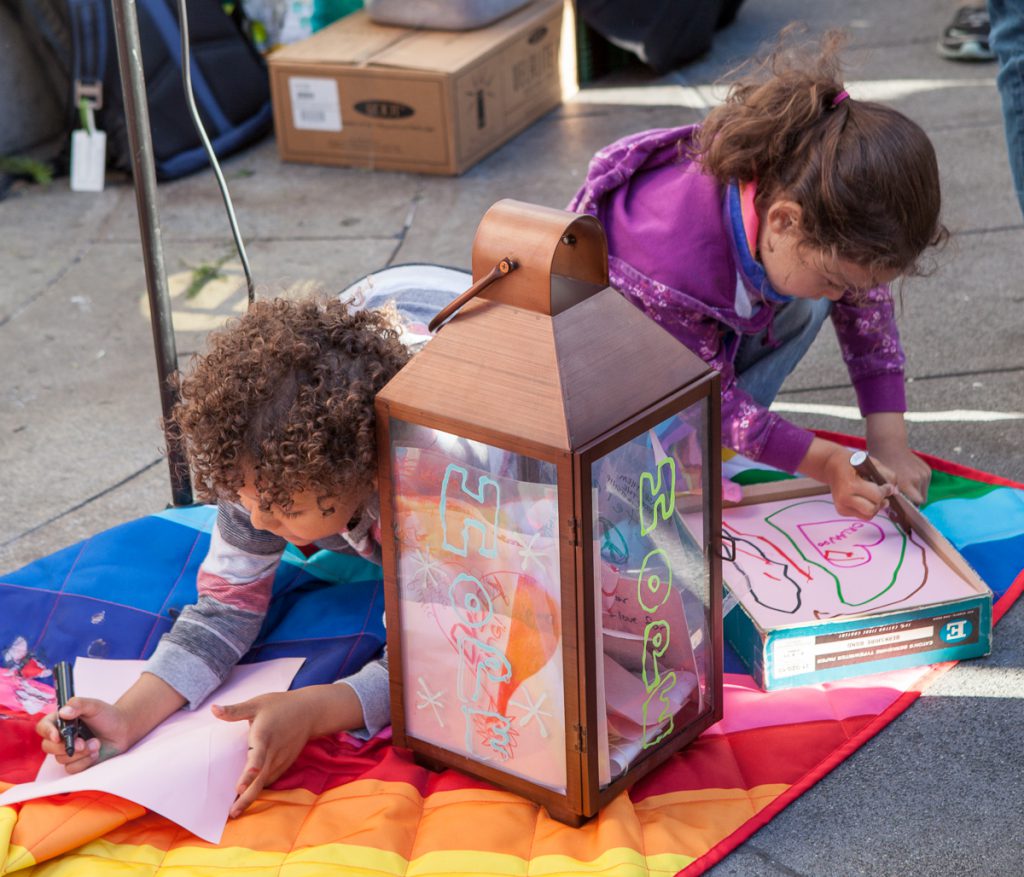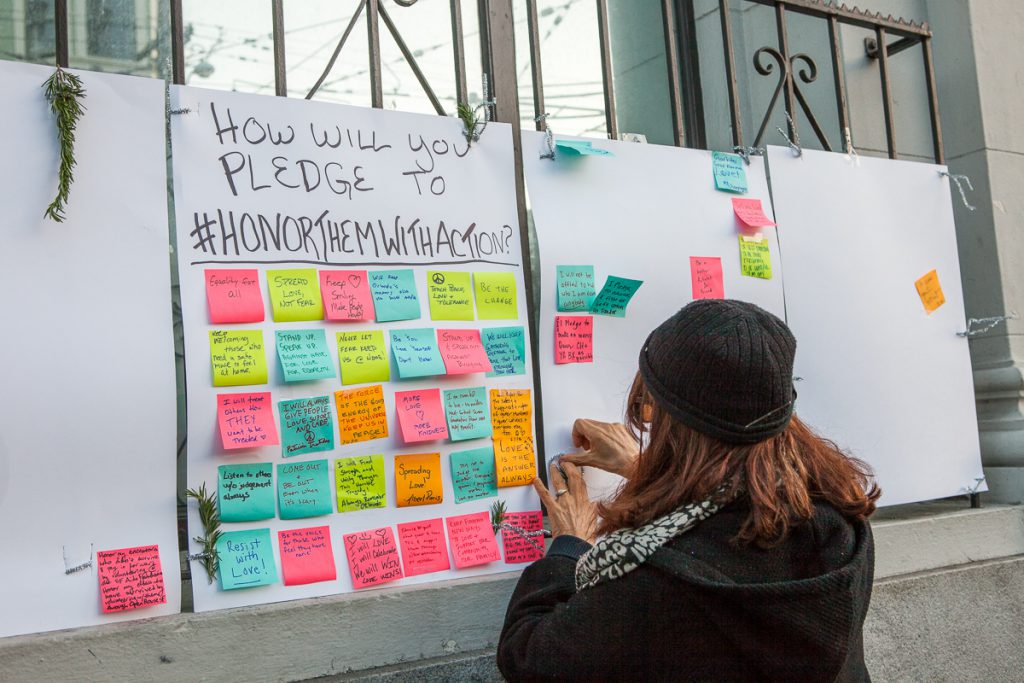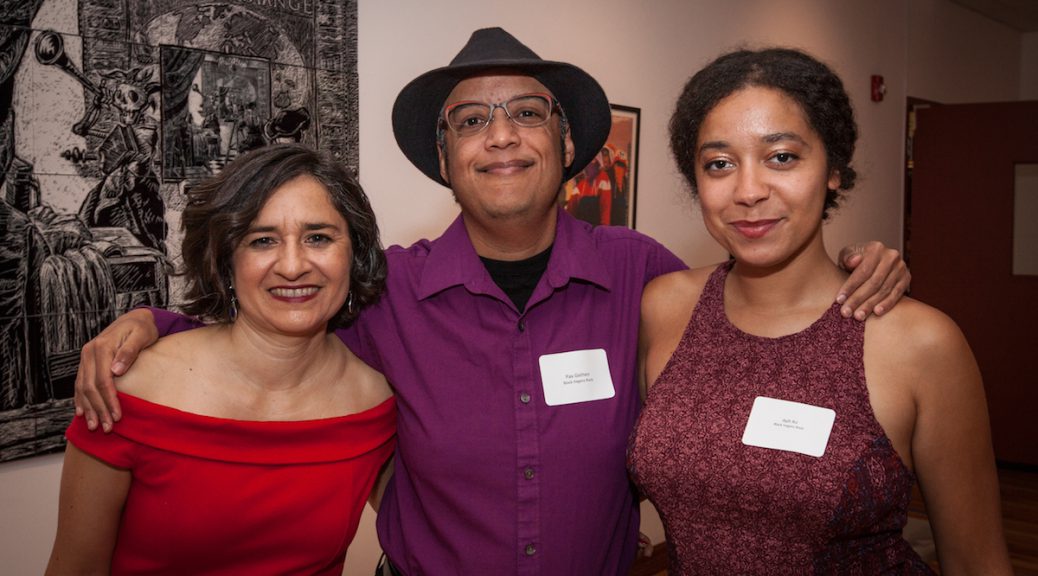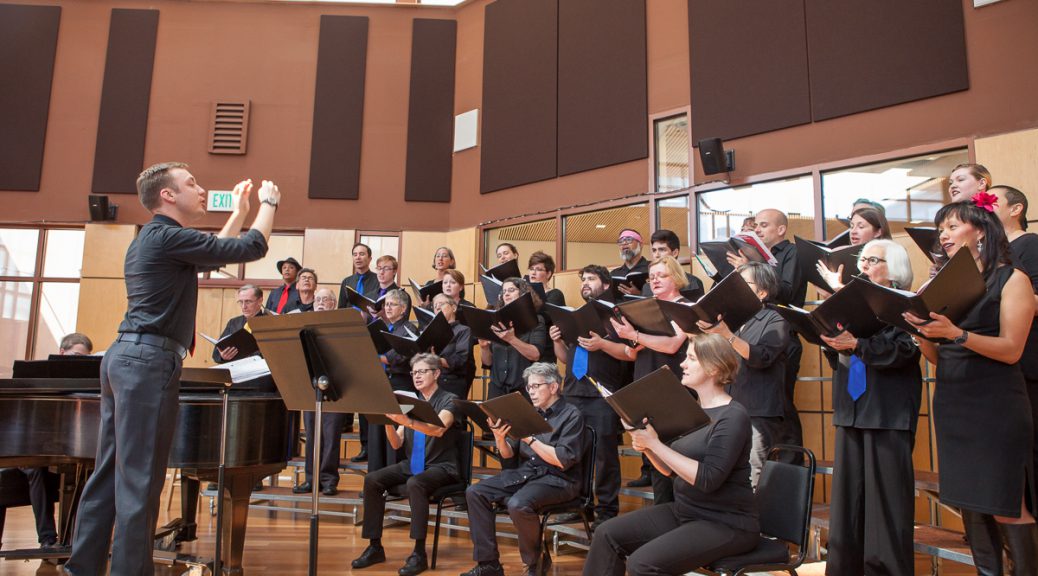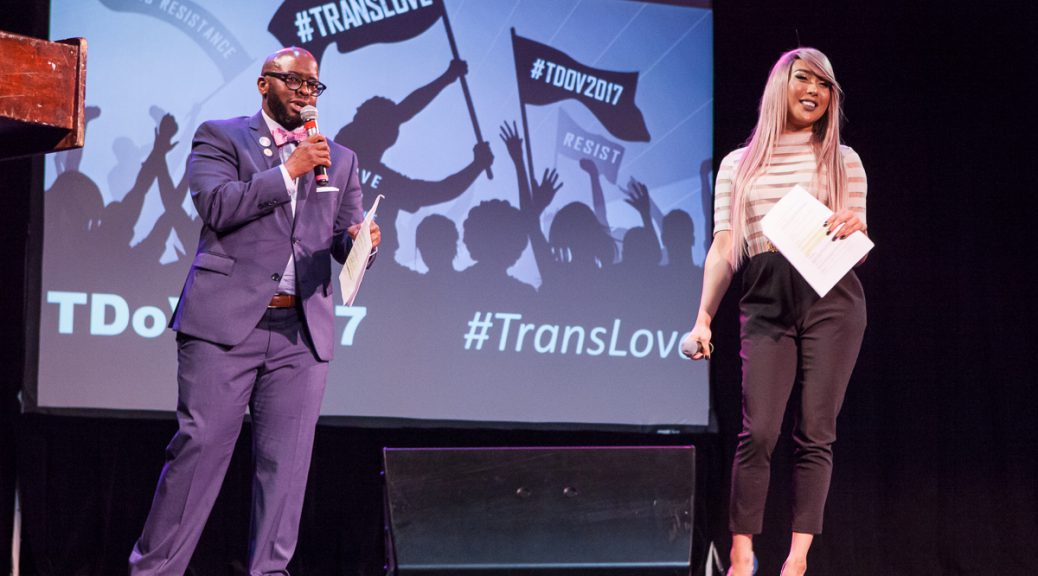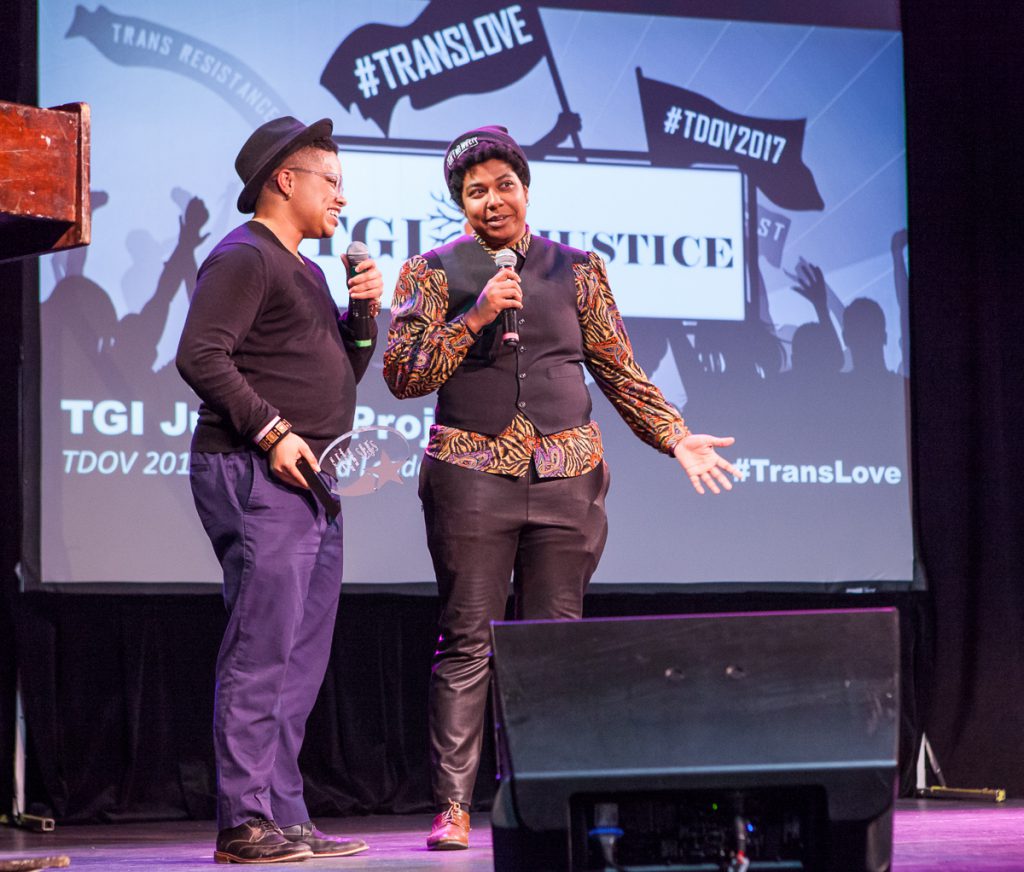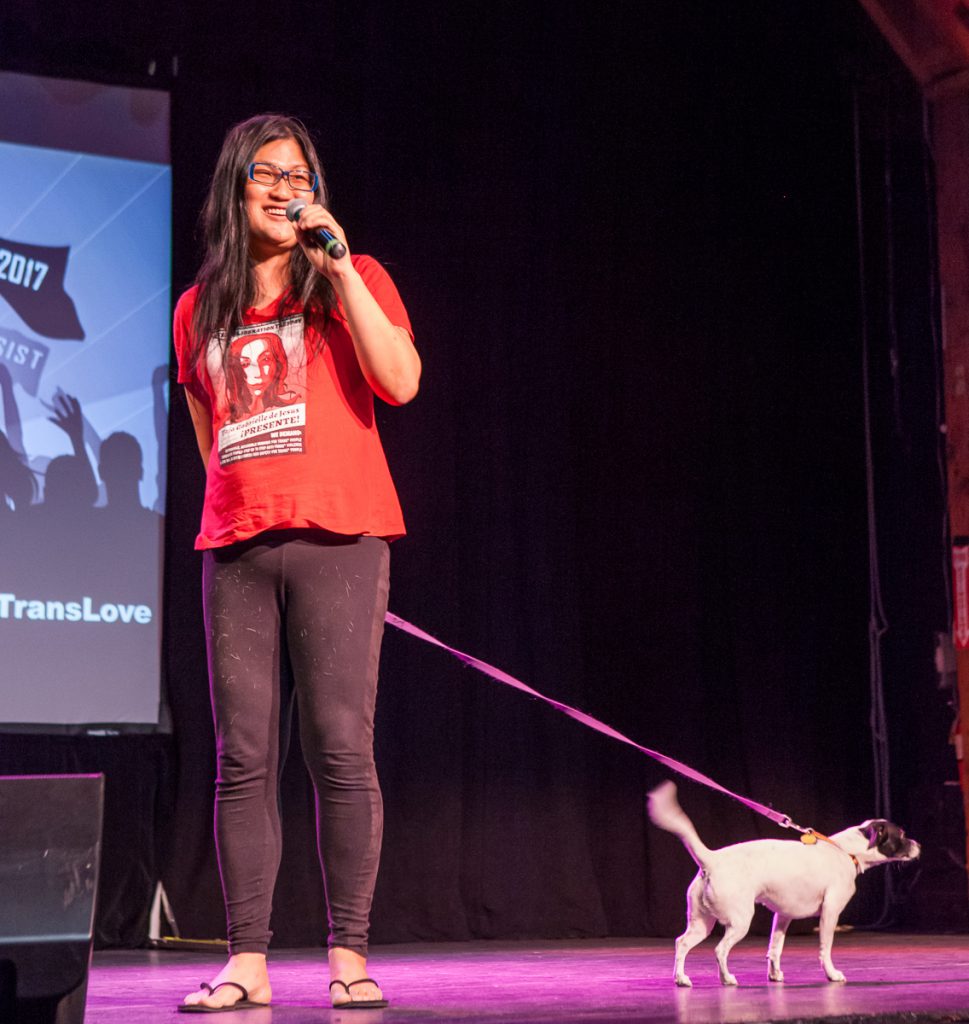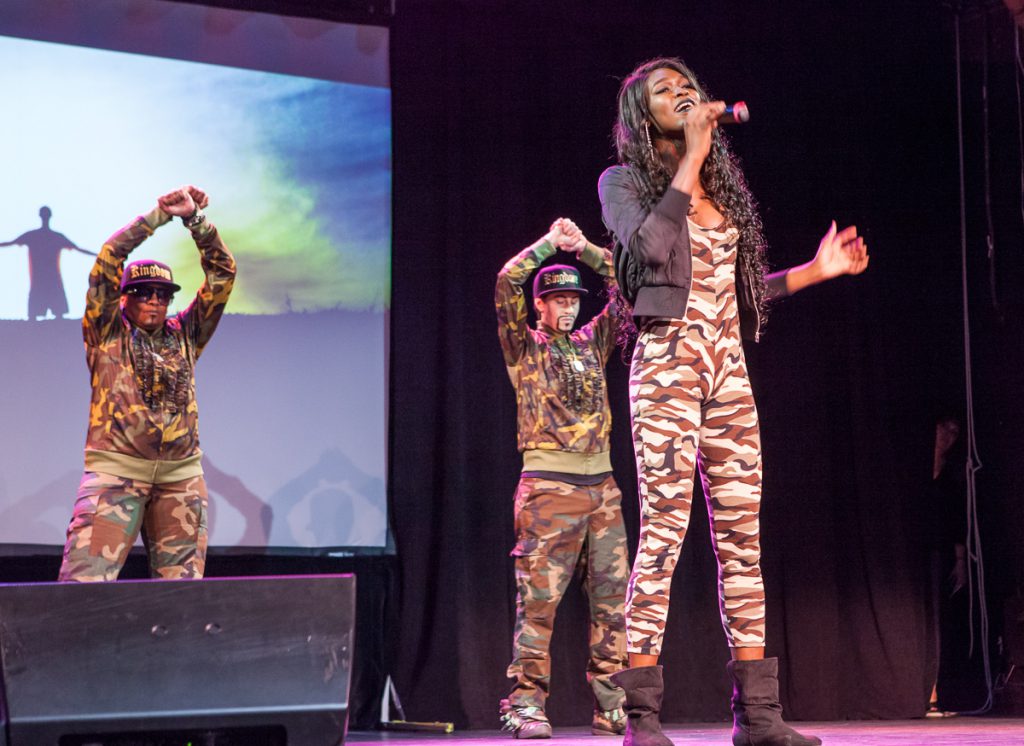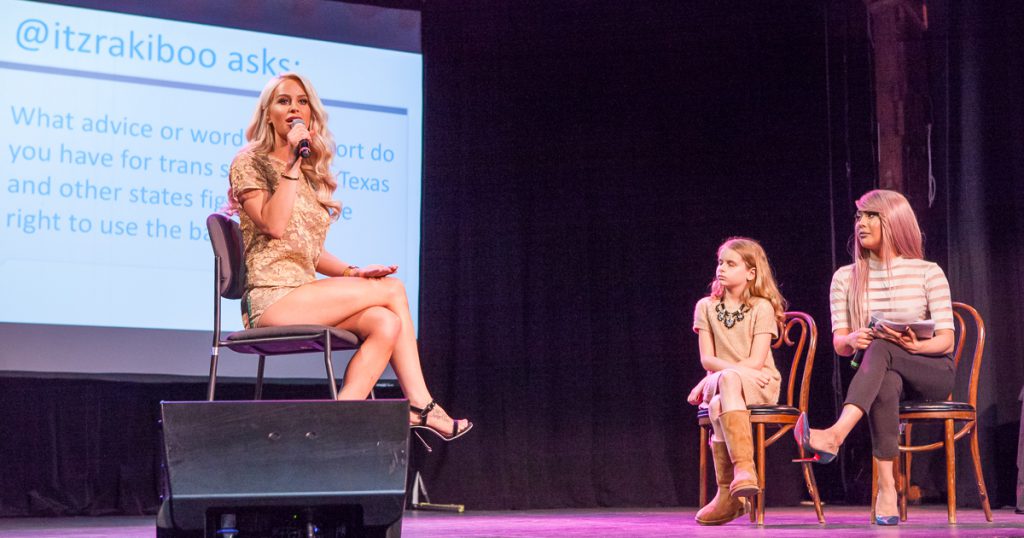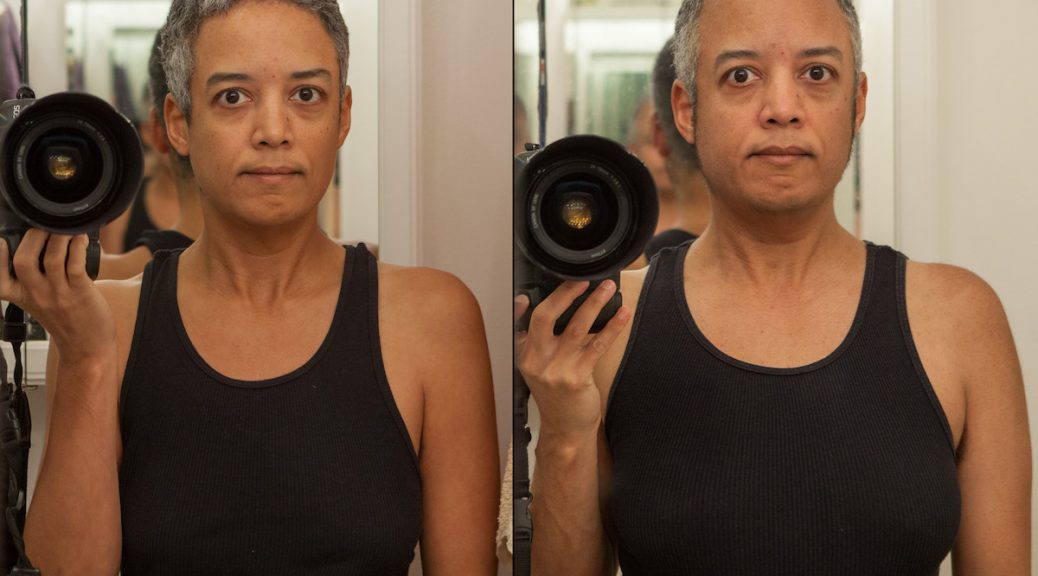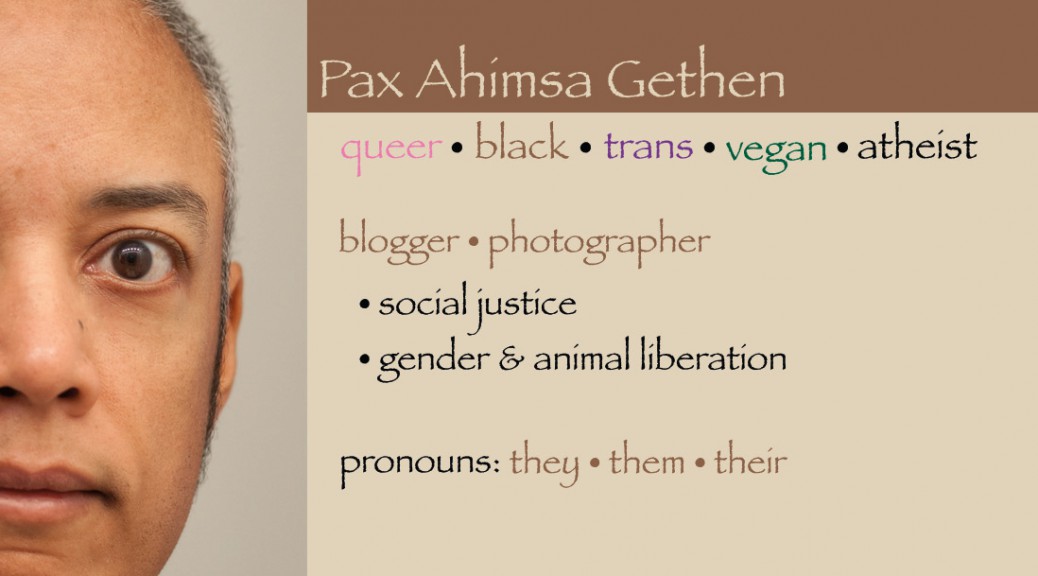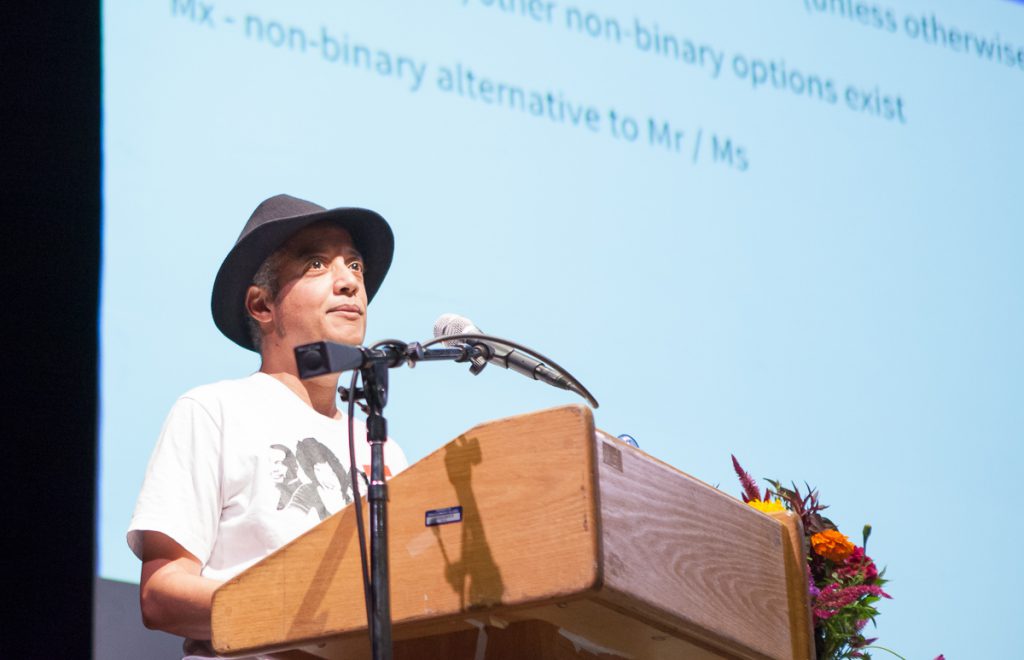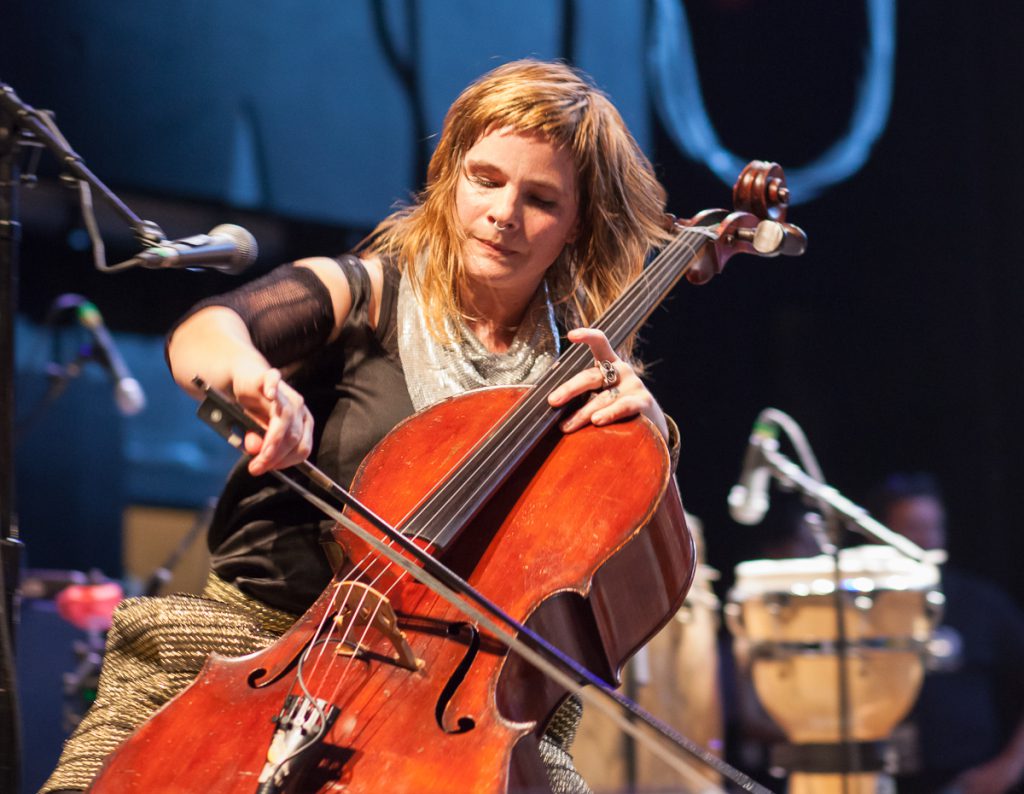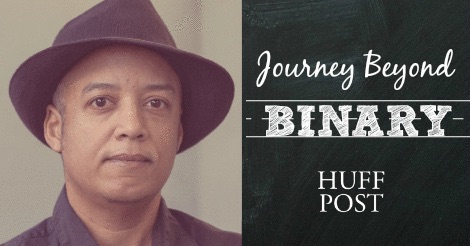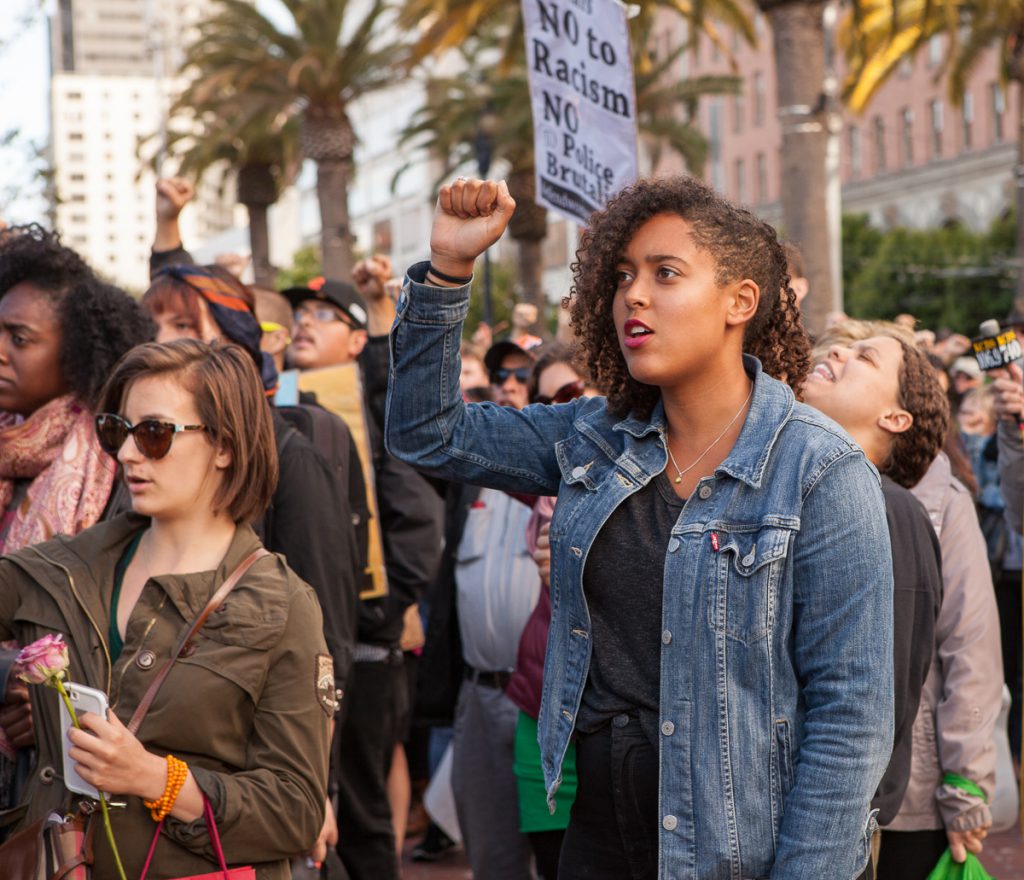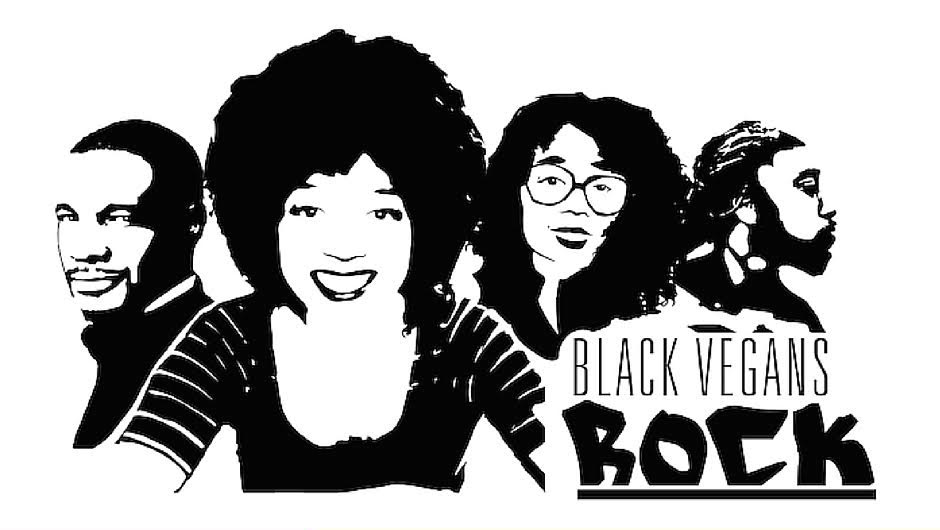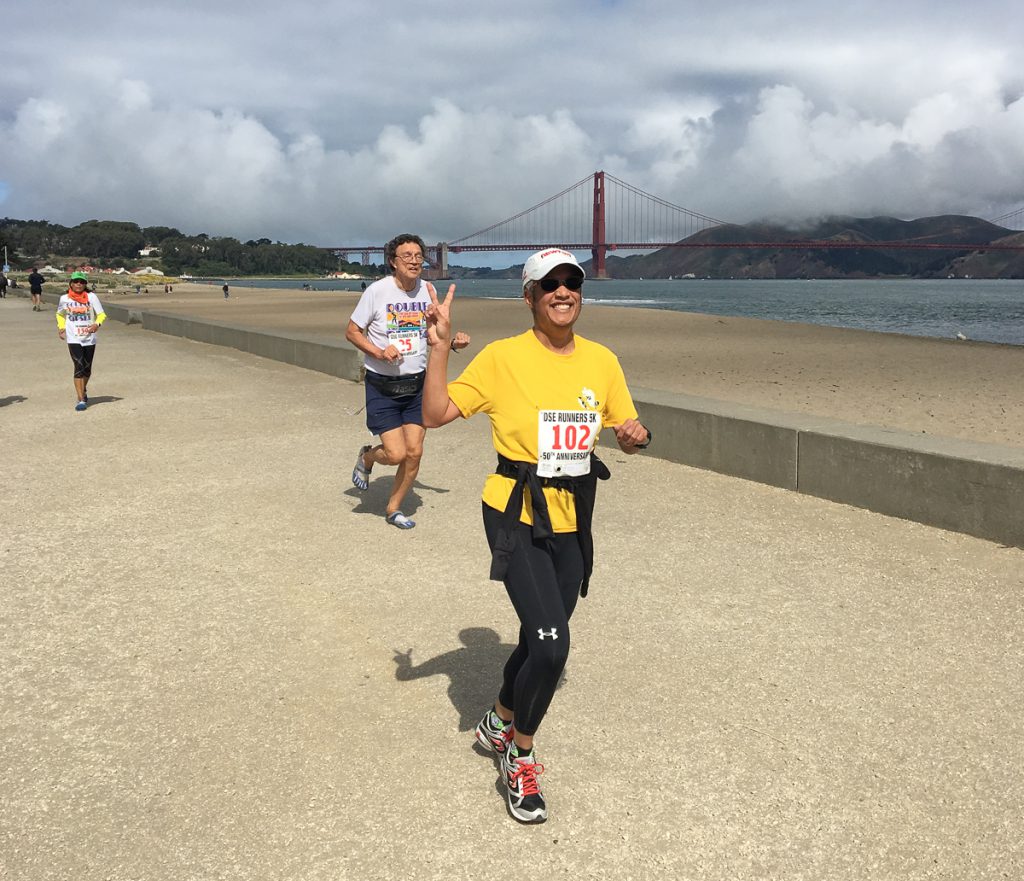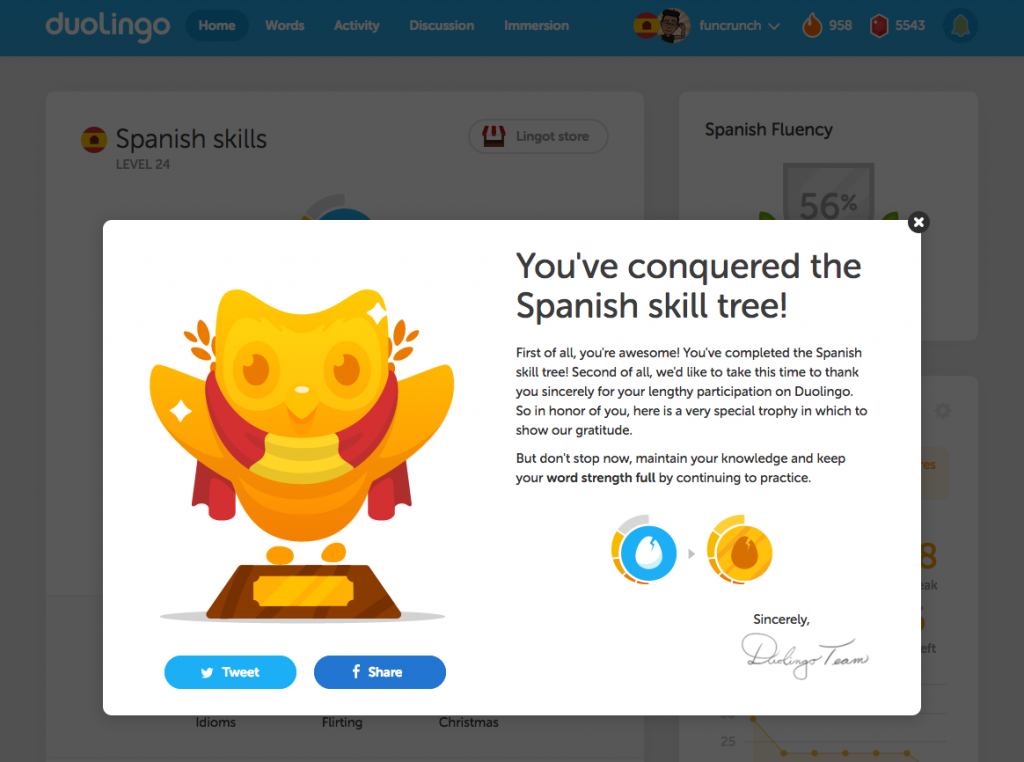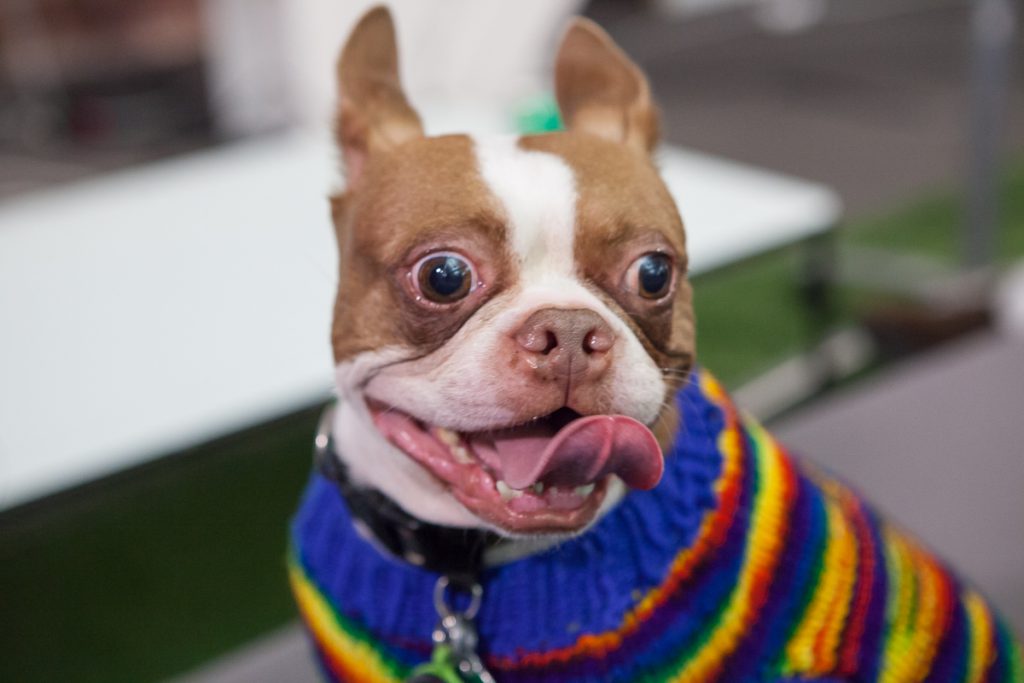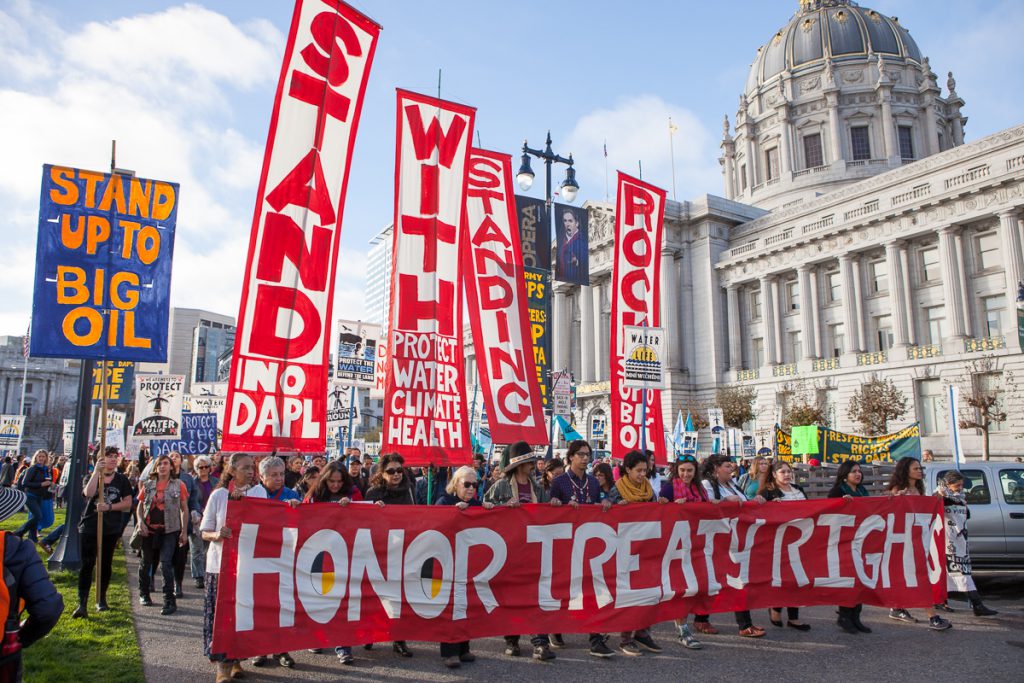[Image: Marching with the Resistance contingent of the San Francisco Pride Parade.]
On Friday I attended the San Francisco Trans March for the fourth consecutive year. As usual, I concentrated on photographing the stage performances at Dolores Park rather than the audience or the march itself. An assortment of singers, dancers, and speakers were featured.
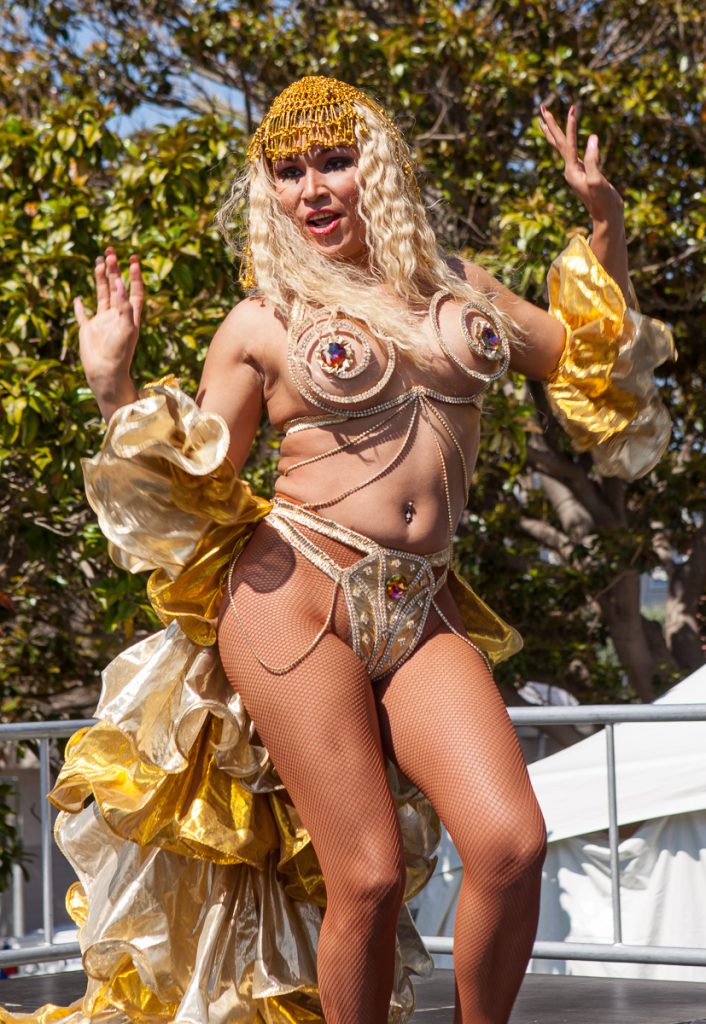 [Image: A performer in a colorful, revealing costume dances at the Trans March.]
[Image: A performer in a colorful, revealing costume dances at the Trans March.]
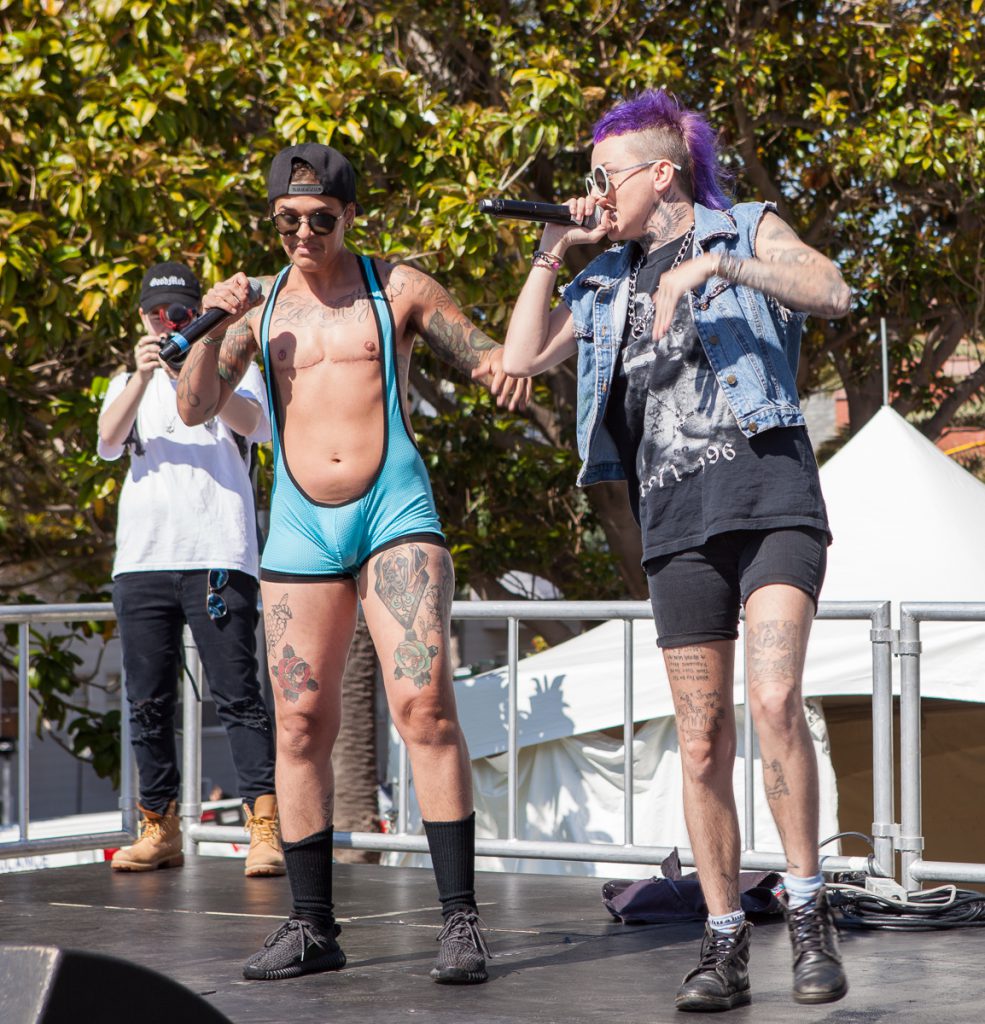 [Image: The hip-hop duo GoodMob performs at the Trans March.]
[Image: The hip-hop duo GoodMob performs at the Trans March.]
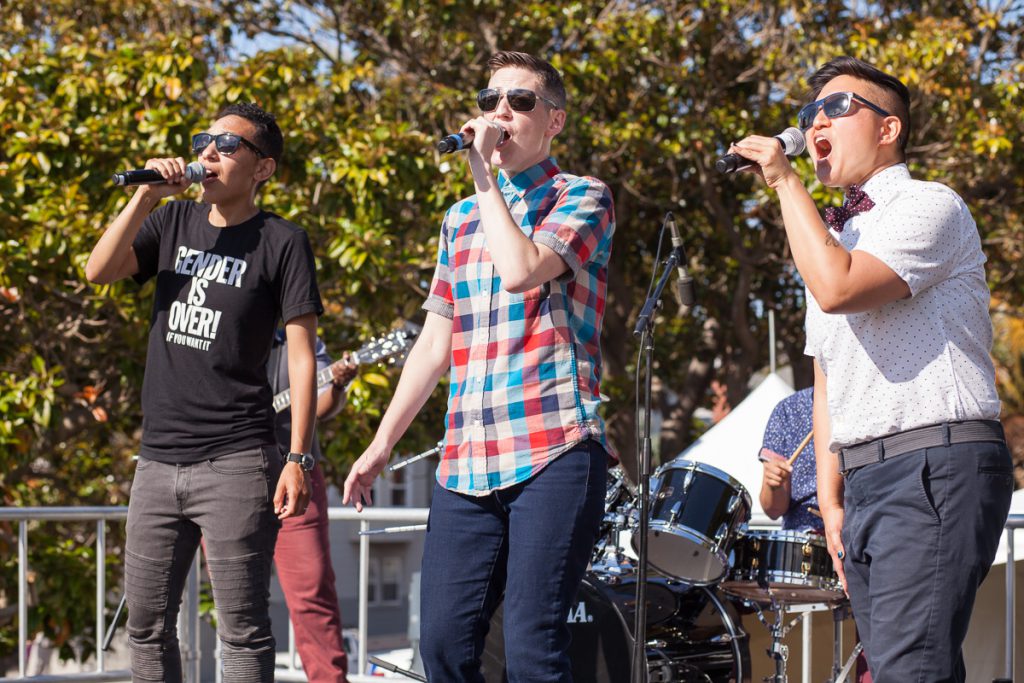 [Image: The Singing Bois perform at the Trans March.]
[Image: The Singing Bois perform at the Trans March.]
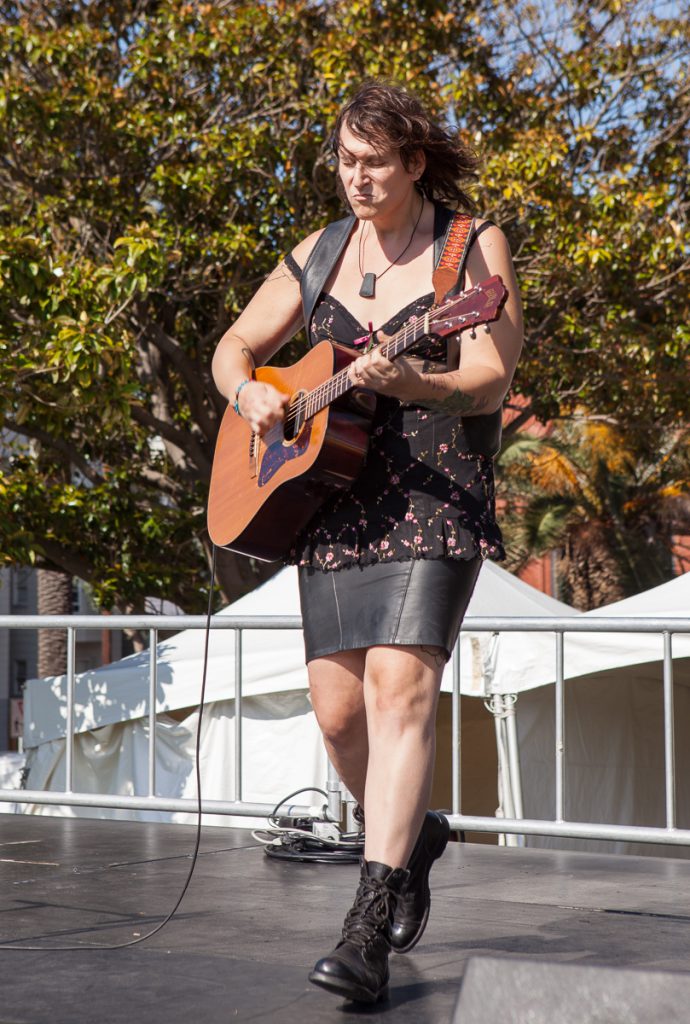 [Image: Mya Byrne performs at the Trans March.]
[Image: Mya Byrne performs at the Trans March.]
The highlight of the show for me was singer-songwriter Mya Byrne, who I’d enjoyed watching twice previously.
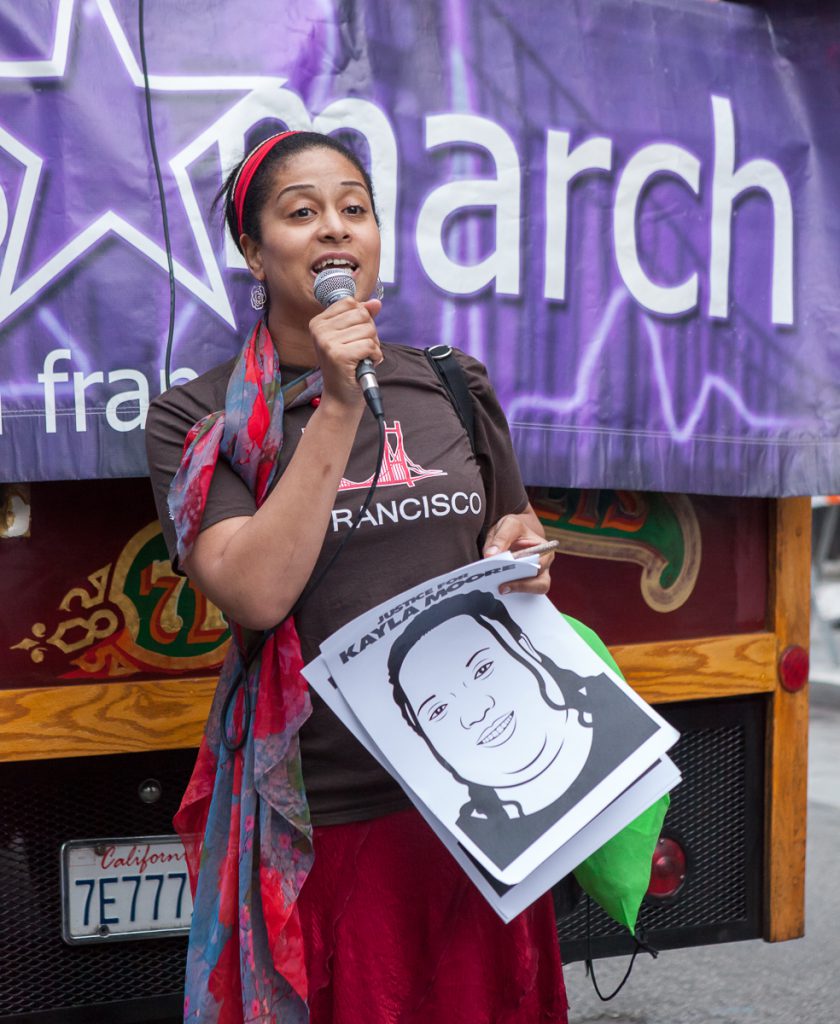 [Image: Ashley Love speaks while holding a “Justice for Kayla Moore” poster.]
[Image: Ashley Love speaks while holding a “Justice for Kayla Moore” poster.]
As in recent years, the march ended at Taylor and Turk in the Tenderloin, near the site of the Compton’s Cafeteria Riot. Several people spoke, including Ashley Love, who wanted to bring attention to the fate of Kayla Moore, a mentally ill black trans woman who died in the custody of the Berkeley police. San Francisco Supervisor Jane Kim announced that the city had proclaimed the area a Transgender Cultural District. (No elected officials were invited to speak on the Dolores Park stage after last year’s uproar.)
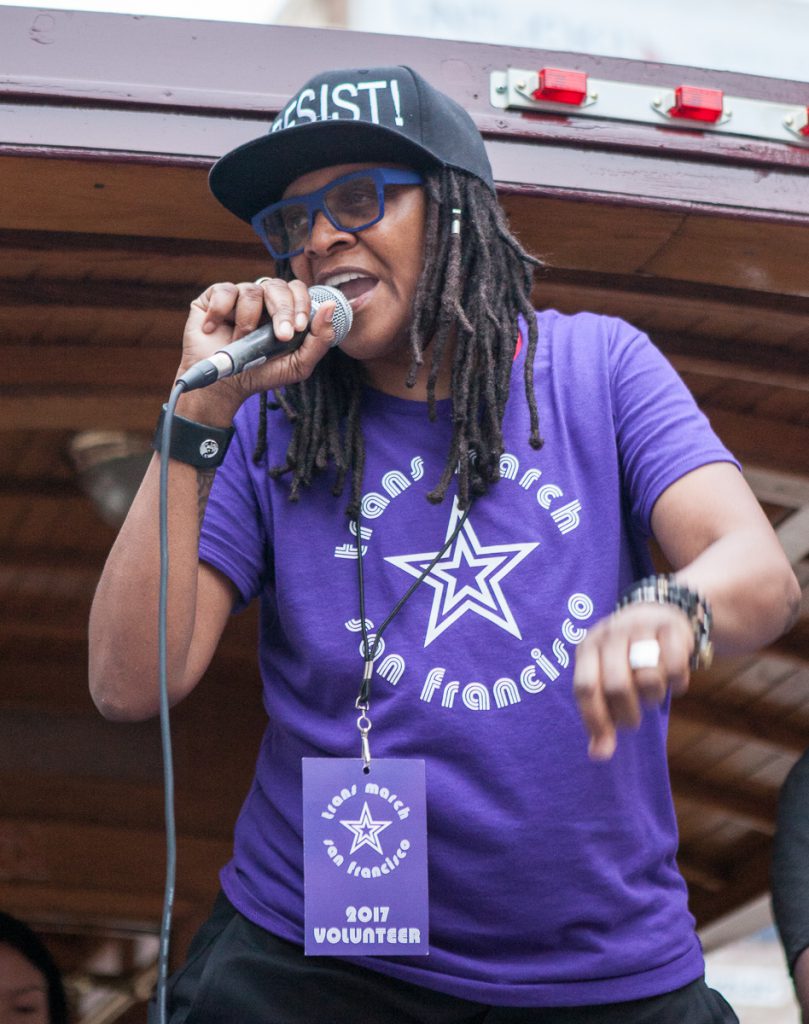 [Image: Alex U. Inn speaks at the Trans March.]
[Image: Alex U. Inn speaks at the Trans March.]
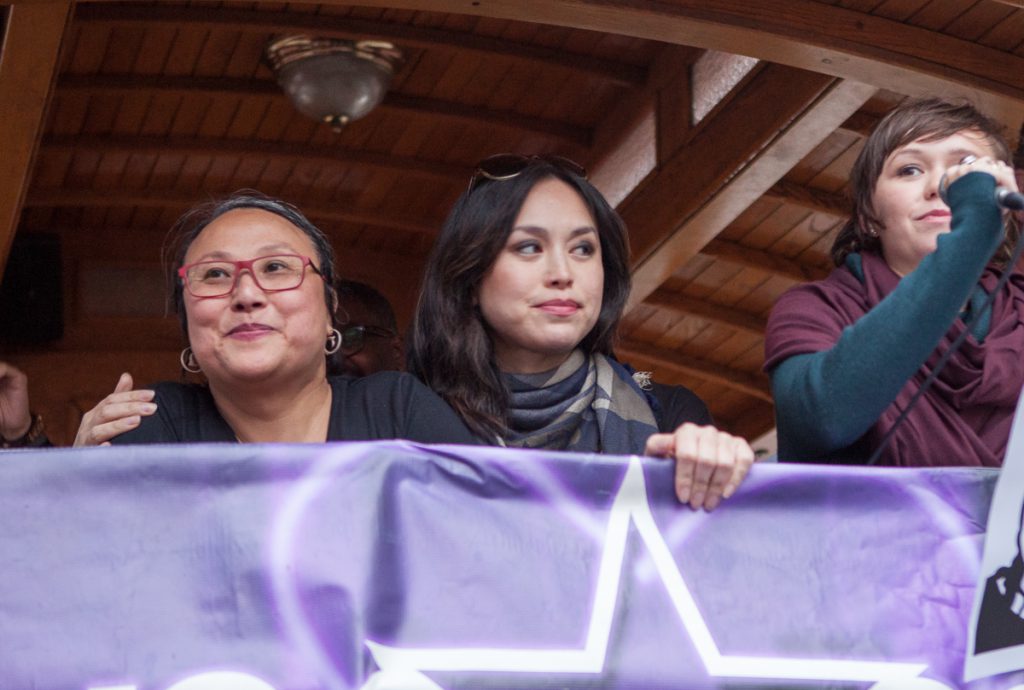 [Image: Cecilia Chung stands with When We Rise actors Ivory Aquino (who portrayed her in that miniseries) and Emily Skeggs.]
[Image: Cecilia Chung stands with When We Rise actors Ivory Aquino (who portrayed her in that miniseries) and Emily Skeggs.]
Other speakers included Alex U. Inn, activist, drag king, and community grand marshal of Sunday’s Pride Parade; professor and gender theorist Susan Stryker; and two actors from the miniseries When We Rise, who were introduced by activist Cecilia Chung, one of the trans people portrayed in that series.
I had not planned to attend the main Pride Parade on Sunday, but when I read that Alex U. Inn was leading a Resistance contingent, I decided to join in. We had a good turnout from a number of different organizations, as well as people not affiliated with any particular group (like myself) who were more interested in protesting oppression than supporting the corporate pinkwashed version of Pride.
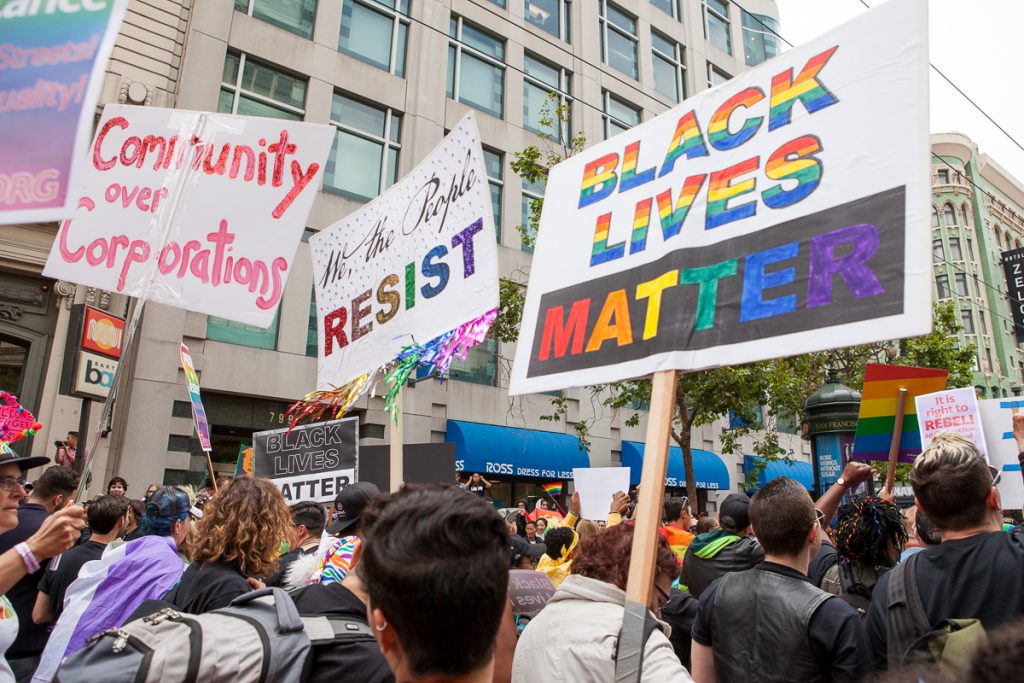 [Image: Marchers hold signs reading “Community over Corporations”, “We the People Resist”, and “Black Lives Matter”.]
[Image: Marchers hold signs reading “Community over Corporations”, “We the People Resist”, and “Black Lives Matter”.]
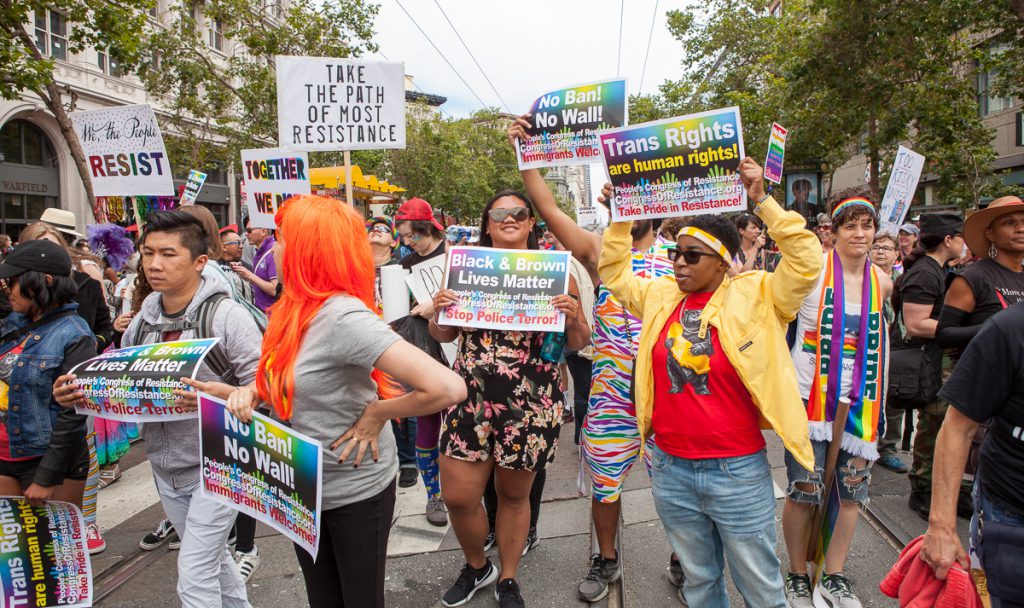 [Image: Marchers hold various signs supporting trans, black and brown folks, and immigrants.]
[Image: Marchers hold various signs supporting trans, black and brown folks, and immigrants.]
 [Image: Alex U. Inn addresses the Resistance contingent at the end of the Pride Parade.]
[Image: Alex U. Inn addresses the Resistance contingent at the end of the Pride Parade.]
At the end of the parade, our contingent was blocked and diverted from entering the celebration area at Civic Center. Alex was livid, denouncing the Pride committee for betraying and kettling us in this fashion. They said that we should go back in and demand to be heard. I was too tired to stick around long enough to see if any further action took place. But I did hear that one group in our contingent, the Degenderettes, had earlier stopped the parade for a short period of time, lying on the ground covered with (fake) blood, forcing every marcher thereafter (we were near the beginning of the parade) to walk over the body outlines of trans people. A powerful performance, which Mya Byrne also participated in (while holding a “Trans Dykes are Good and Pure” sign).
My full sets of photos from the Trans March and the Pride Parade are available on Flickr. Some are also on Wikimedia Commons, alongside photos from other contributors. Please credit me as Pax Ahimsa Gethen if you use any of my photos, thanks!
